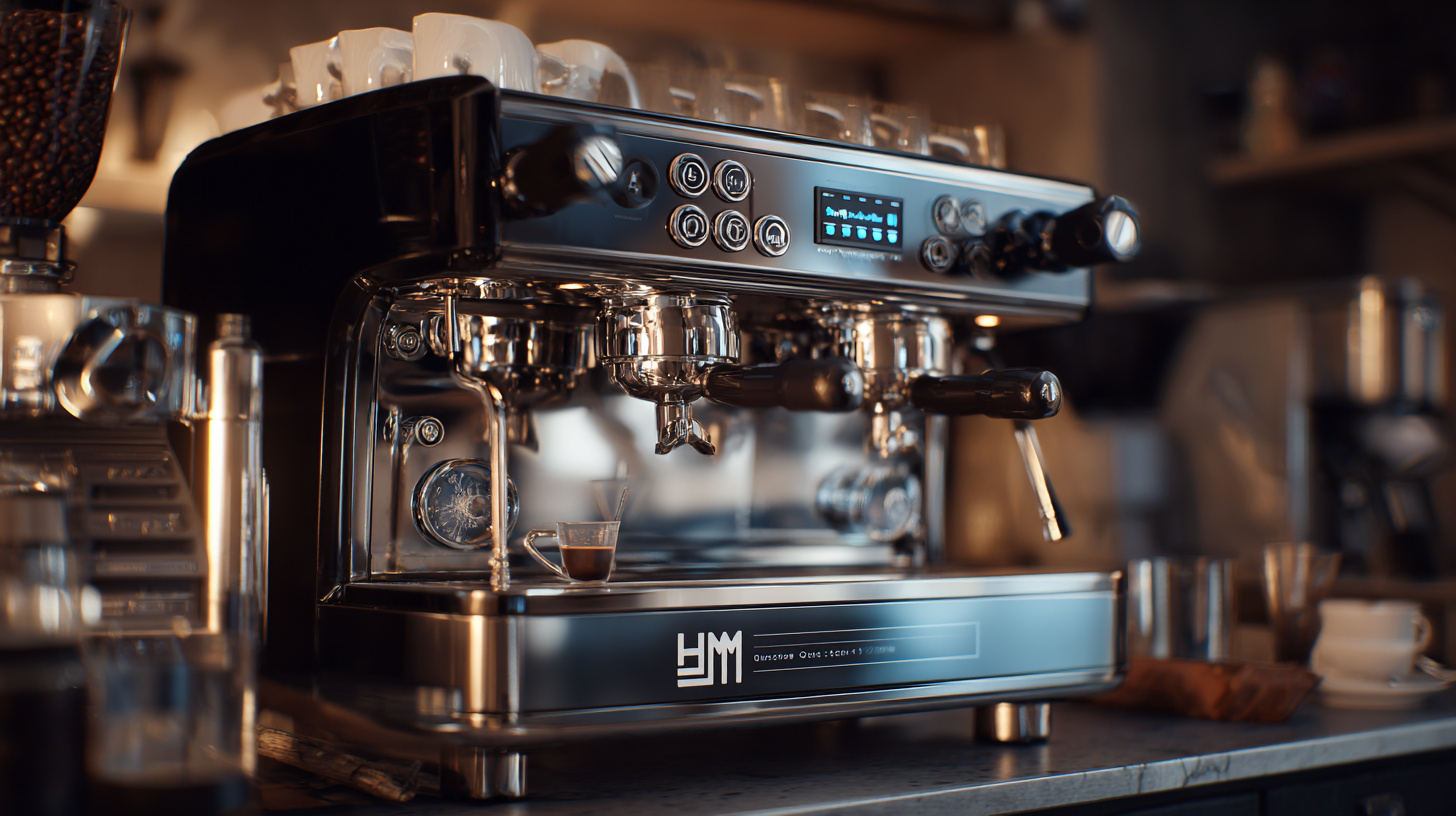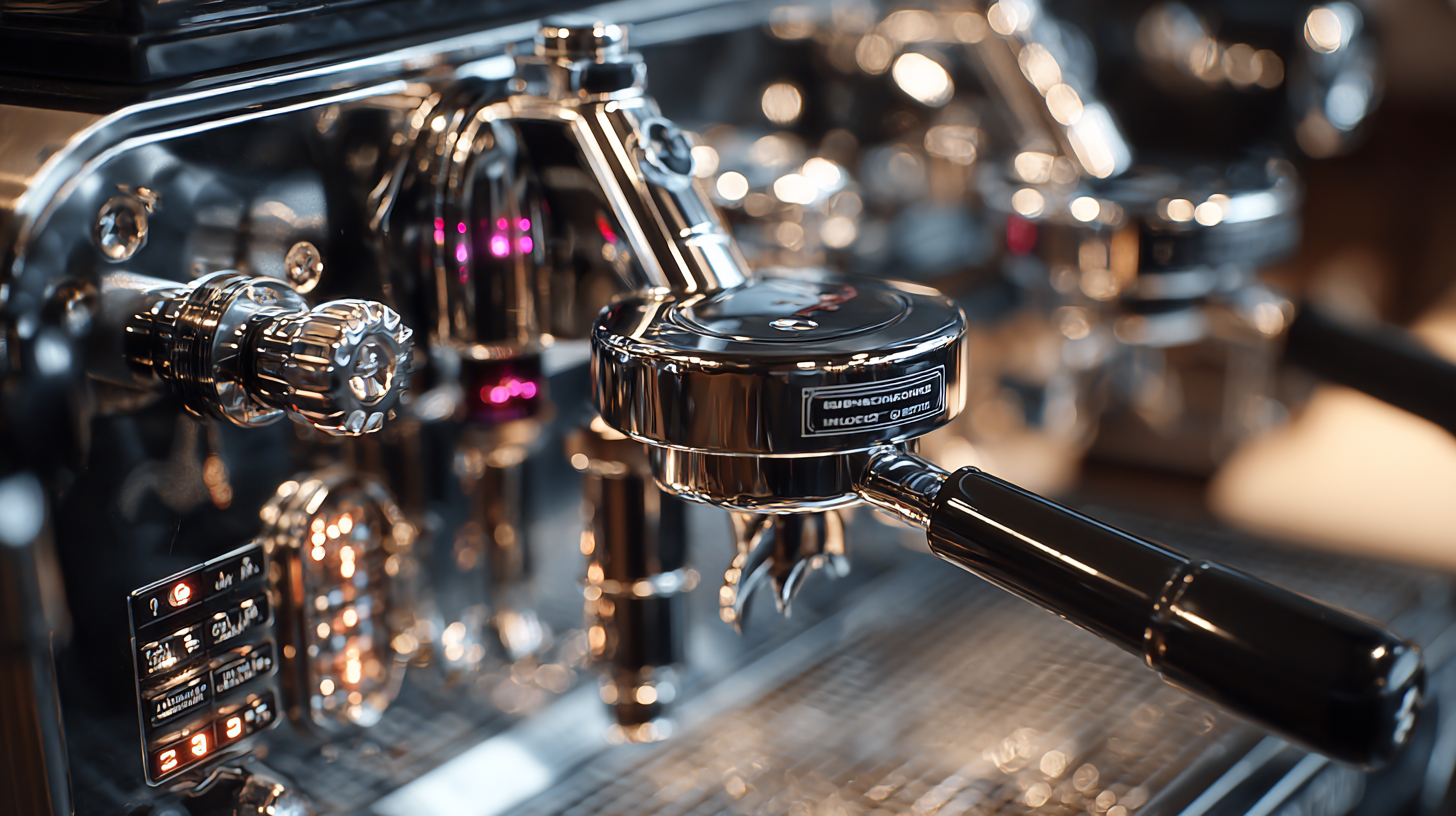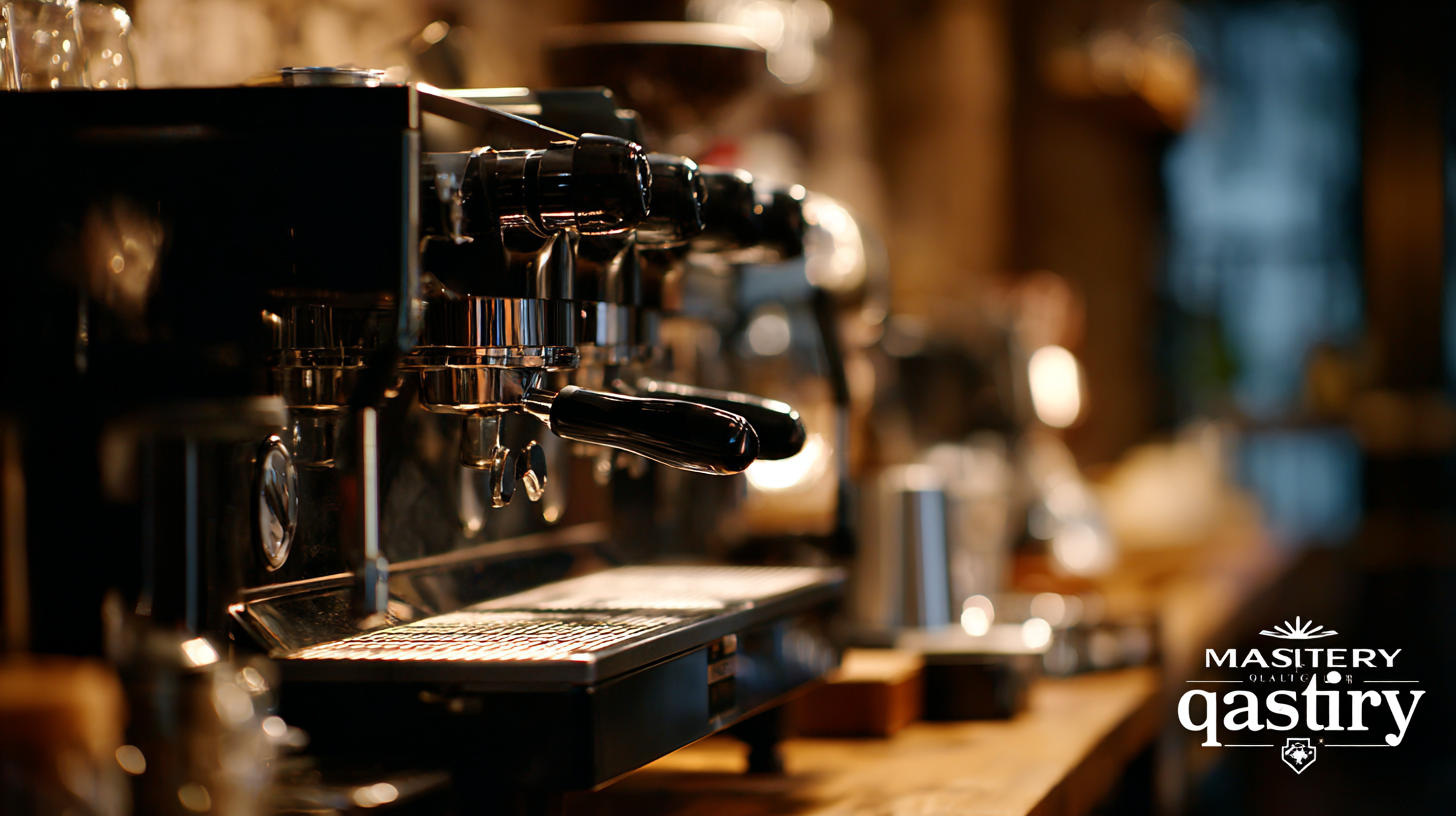Mastering Quality: How to Choose the Best Coffee Machine for Your Shop According to Industry Standards
In today's competitive coffee industry, selecting the right coffee machine for shop operations is crucial to delivering high-quality beverages that satisfy discerning customers. According to the National Coffee Association, approximately 62% of American adults consume coffee daily, highlighting the increasing demand for exceptional coffee experiences. Furthermore, a report by Technavio reveals that the global coffee machine market is expected to grow by over $1.2 billion from 2021 to 2025, driven by innovations in technology and rising consumer preferences for high-quality brews.

As coffee shops strive to meet these evolving expectations, understanding industry standards and making informed decisions about coffee machine features, reliability, and performance can significantly impact profitability and customer satisfaction. In this blog, we will explore the essential factors to consider when choosing the best coffee machine for shop environments, ensuring that your establishment stands out in a saturated market where excellence is paramount.
Understanding Industry Standards for Coffee Machines in Your Shop
When selecting a coffee machine for your shop, understanding industry standards is crucial for ensuring quality and consistency in your brews. Industry standards provide guidelines on performance, safety, and energy efficiency, helping you make informed decisions. Key standards to consider include the National Sanitation Foundation (NSF) certification, which ensures the machine's materials and components meet health and safety regulations. Additionally, look for machines that carry the Underwriters Laboratories (UL) mark, indicating compliance with electrical safety standards.
Another important aspect is the machine's brewing capacity and flexibility to adapt to high-demand settings, along with its temperature stability for optimal extraction. Industry standards often highlight the importance of quick recovery times and user-friendly interfaces, particularly in fast-paced environments. Assessing these features not only aligns with professional standards but also enhances customer satisfaction. Ultimately, investing in a coffee machine that meets or exceeds industry benchmarks will help your shop maintain an excellent reputation for quality and service.

Key Features to Look for in a High-Quality Coffee Machine
When selecting a high-quality coffee machine for your shop, it's essential to prioritize key features that cater to the preferences of your target demographic. Notably, the rise of young, affluent professionals—predominantly women residing in first- and second-tier cities—indicates a growing market for premium coffee experiences. According to recent industry reports, this demographic exhibits a strong inclination towards investing in quality products that enhance their lifestyle.

One significant aspect to consider is the machine's ability to deliver fresh, high-quality coffee efficiently. The coffee machine industry in China is heavily concentrated on mid- to low-end products, with a focus on affordability for larger enterprises aiming to create appealing "coffee corners" for office workers. However, as the market shifts, it's crucial to look for machines that combine quality with cost-effectiveness. Features such as bean-to-cup systems, customizable brewing options, and efficient maintenance protocols ensure that establishments can serve exceptional coffee while managing operational costs effectively.
Additionally, the demand for machines that accommodate various coffee preferences can enhance customer satisfaction and loyalty. Investing in machines that offer versatile options—from espresso to specialty brews—can meet the diverse tastes of today's consumers. As the coffee machine market continues to evolve, focusing on these essential features will be pivotal for businesses looking to establish a distinct presence in the competitive landscape.
Top 5 Coffee Machines Recommended by Experts for Cafés
When selecting the best coffee machine for your café, it’s essential to consider expert recommendations alongside industry standards. According to a recent report by the Specialty Coffee Association (SCA), up to 40% of a café's overall success can be attributed to the quality of coffee served. This underscores the importance of investing in a reliable, high-performance machine to meet customer expectations.
Experts frequently recommend several coffee machines that excel in both quality and consistency. The La Marzocco Linea Mini, for example, is lauded for its durability and precise brewing capabilities, making it suitable for high-demand cafés. Another noteworthy option is the Breville Oracle Touch, which combines user-friendly features with advanced technology, ensuring that baristas can produce café-quality beverages with ease. Additionally, the Nuova Simonelli Appia Life is celebrated for its energy efficiency and ergonomic design, appealing to both café owners and environmentally conscious customers. By choosing any of these top machines, café owners can significantly enhance their beverage offerings and establish a solid reputation within the competitive coffee industry.
Cost vs. Quality: Finding the Best Value in Coffee Equipment
When selecting coffee equipment for your shop, the debate between cost and quality cannot be overstated. Investing in a high-quality coffee machine often means a more significant initial outlay, but the long-term benefits can far outweigh these costs. A premium machine not only enhances the flavor and consistency of your beverages but also reduces maintenance costs and prolongs the equipment's lifespan. Understanding the balance between price and performance is essential for maximizing your return on investment in the competitive coffee market.
To find the best value in coffee equipment, shop owners should consider their specific needs and customer expectations. Conducting thorough research on different brands and models can unveil machines that offer exceptional quality at a competitive price. Additionally, considering aspects such as energy efficiency and warranty options can help mitigate long-term operational costs. By prioritizing both quality and cost, businesses can ensure they are equipped to provide outstanding coffee experiences while maintaining healthy profit margins.
Mastering Quality: How to Choose the Best Coffee Machine for Your Shop According to Industry Standards
| Machine Type | Price Range ($) | Quality Rating (out of 5) | Maintenance Cost (Annual $) | Suitable For |
|---|---|---|---|---|
| Espresso Machine | 1500 - 5000 | 4.5 | 200 | Coffee Shops, Restaurants |
| Drip Coffee Maker | 100 - 800 | 3.5 | 50 | Small Cafés, Offices |
| Single Serve Machine | 80 - 300 | 4.0 | 30 | Home Use, Small Offices |
| French Press | 20 - 50 | 4.2 | 10 | Home Use, Cafés |
| Pour Over Equipment | 30 - 200 | 4.0 | 20 | Coffee Enthusiasts, Cafés |
Maintaining Your Coffee Machine: Best Practices for Longevity
When it comes to maintaining your coffee machine, adhering to best practices is crucial for ensuring longevity and optimal performance. Regular cleaning is essential to prevent the buildup of oils and coffee residue. Schedule daily cleanings of your coffee baskets and brew heads, while weekly deep cleans can keep scale buildup at bay, especially in areas with hard water.
**Tip:** Use a mixture of water and white vinegar for a natural descaling solution. This will help maintain the integrity of your machine without harmful chemicals.
Another important aspect is monitoring the internal components of your coffee machine. Regularly checking the condition of the gaskets, seals, and tubing can prevent leaks and ensure consistent pressure during brewing.
**Tip:** Keep a log of replacements and service dates to stay on top of maintenance. This proactive approach helps catch issues before they affect your coffee quality.
Finally, ensure your staff is trained on the proper use and maintenance protocols. Proper training helps minimize user error and extends the lifespan of your equipment.
**Tip:** Create a maintenance checklist for your team to follow daily and weekly, helping instill a culture of care and responsibility for the coffee machine.


